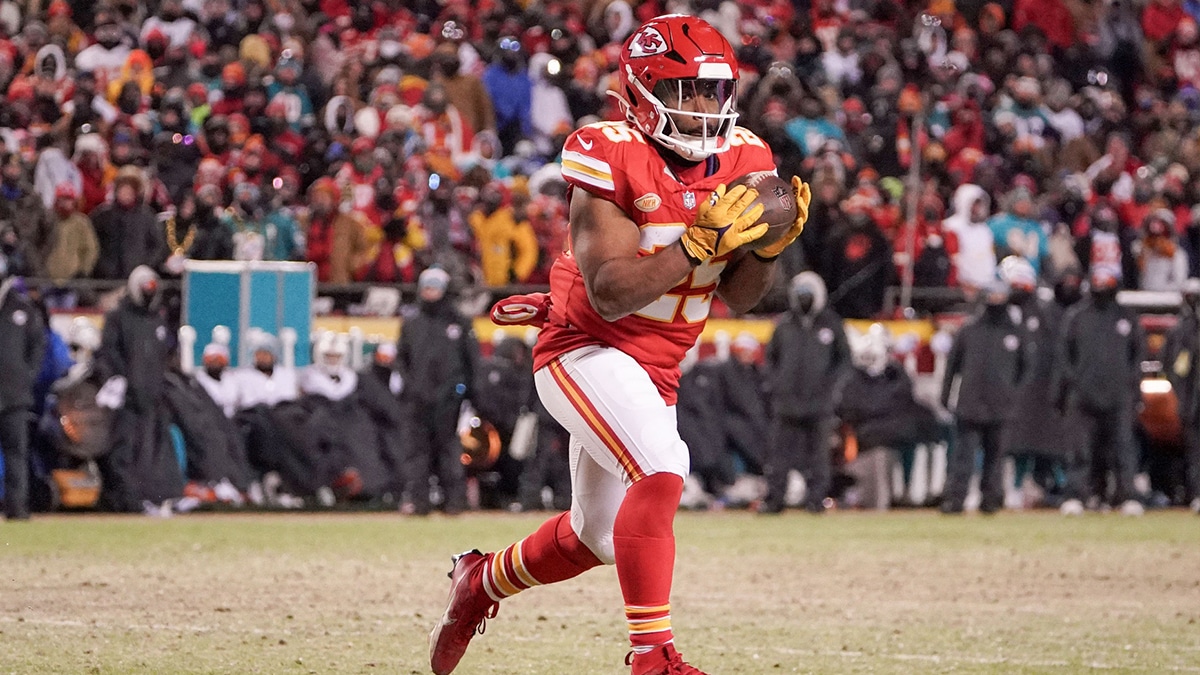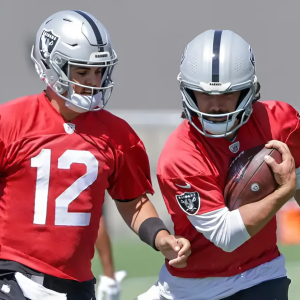
Clyde Edwards-Helaire has been a warrior for the Chiefs.
Recently, Kansas City Chiefs running back Clyde Edwards-Helaire had been absent from several practice sessions. On Thursday, Edwards-Helaire opened up about his battle with post-traumatic stress disorder (PTSD) after disclosing earlier in the week that he has been dealing with the condition.
“Living With PTSD is no small feat, its hard and very overwhelming . Within the last month Ive Had many flare ups and the Amazing staff here at the #Chiefs have been helping me get through some tough times. I’ll be back rolling next Practice! All Love , Glydro ❤️💛.” Edwards-Helaire said in his post in X(formerly Twitter).
Living With PTSD is no small feat, its hard and very overwhelming . Within the last month Ive Had many flare ups and the Amazing staff here at the #Chiefs have been helping me get through some tough times.
I’ll be back rolling next Practice! All Love , Glydro ❤️💛— GLYDE (@Clydro_22) July 29, 2024
Clyde Edwards-Helaire sharing details about his battle with PTSD
On Thursday, Edwards-Helaire addressed the media about his experience with PTSD.
Edwards-Helaire pinpointed December 22, 2018, as the onset of his PTSD. He didn’t elaborate much, except to mention that he and a friend were involved in a “self-defense situation” at that time while he was at LSU.
“That’s the day my best friend and I had a self-defense situation and I will say that’s probably where the majority of things stem from, but I wouldn’t necessarily say everything stemmed from that,” said Clyde Edwards-Helaire.
During his time at LSU, Edwards-Helaire and linebacker Jared Small arranged to meet 18-year-old Kobe Johnson to sell an electronic device. The meeting escalated when Johnson attempted to rob them, leading to Johnson being shot and killed.
Although District Attorney Hillar Moore concluded that Edwards-Helaire and Small were defending themselves, the traumatic experience left Edwards-Helaire with PTSD.
Neither Edwards-Helaire nor Small faced charges following the incident, and Edwards-Helaire went on to play in the Fiesta Bowl less than two weeks later. He was then selected by the Kansas City Chiefs in the first round of the 2020 NFL Draft, sixteen months after the event.
How PTSD has affected Clyde Edwards-Helaire

During his Thursday comments, Edwards-Helaire shared that he has been hospitalized in the past due to persistent vomiting. He has also missed practices in recent seasons, which the team attributed to illness. This was the first occasion he spoke extensively about his ongoing struggles over the past six years.
He expressed gratitude to his personal supporters and offered advice on how people can be supportive teammates to those dealing with PTSD.
“My first couple of years, you just try to block everything out and it’s like, ‘Oh, at some point I’m going to get over it,’” the Chiefs running back said via ESPN’s Adam Teitcher.
“And you start to realize that that just doesn’t happen. You get older and you realize, ‘Hey, no matter the age, no matter the person, no matter the situation, everyone needs help at some point.’ It takes courage to talk about it and having PTSD and dealing with it once people kind of bring it up, it is not something that I’d always want to talk about. I never really know how my body will react or my mind, it is just something that I can’t really pinpoint or know exactly what’s going to happen,” he continued.
Edwards-Helaire has spent his entire four-year career with the Kansas City Chiefs, where he’s racked up 2,610 yards and 19 touchdowns after being chosen as the 32nd pick in the 2020 NFL Draft.
He shined at LSU, playing a key role in the Tigers’ perfect 2019 season and their national championship victory.




